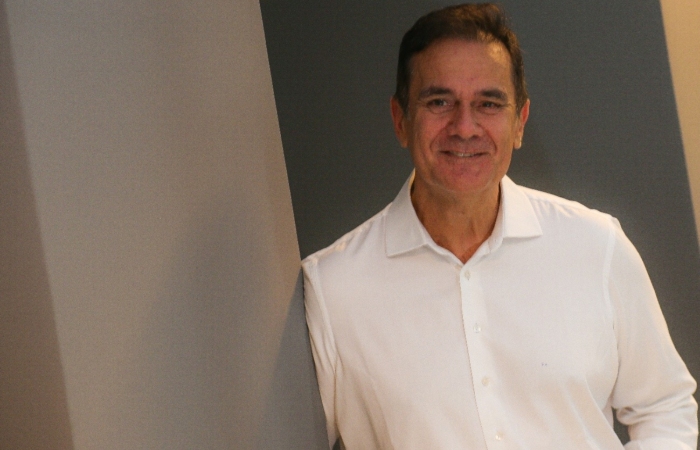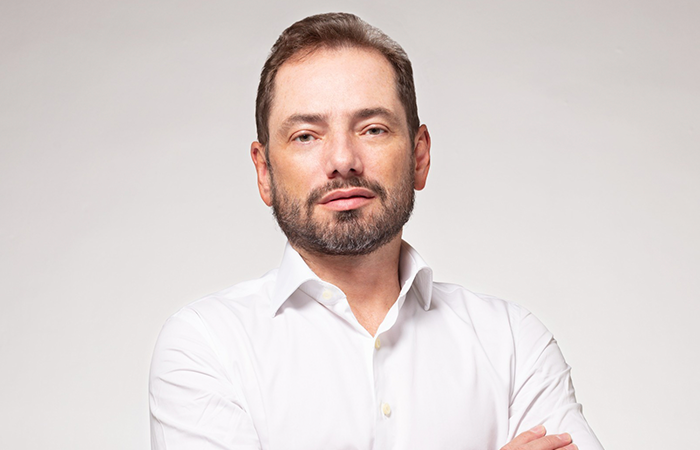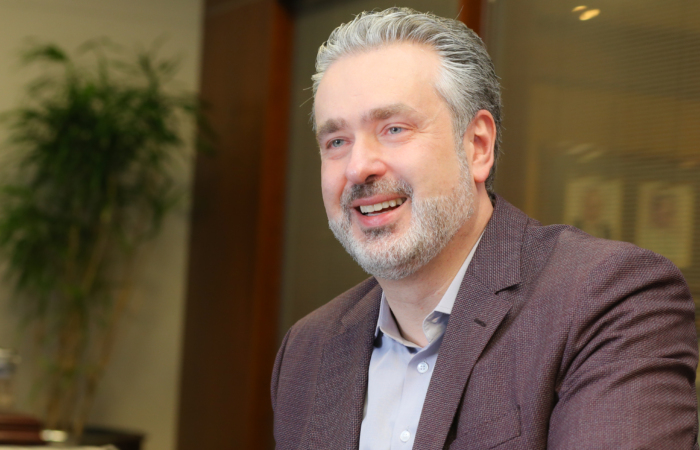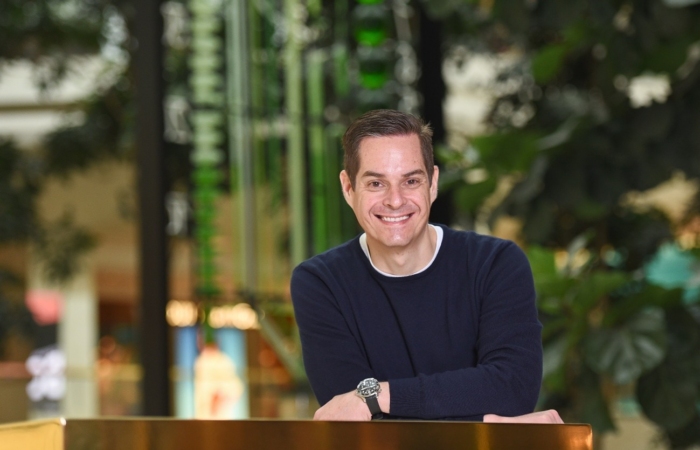PEOPLE AT THE HEART OF THE STRATEGY

O Reputation Feed spoke with HR leaders from large companies to delve deeper into aspects of the trend identified in the survey “Senior leadership priorities for 2025” that employee development, talent attraction and retention, and succession are the number 1 focus of organizations this year, as well as to assess the impact on the business strategy and reputation.
The series of interviews begins with Márcia Costa, VP of People Management at Aegea Sanitation, executive with over 30 years of experience in human resources, leadership development and cultural transformation, having previously worked in companies such as McDonald's, Espadrilles and HERE.
COMPANY PROFILE
. Sector: Basic Sanitation
. Creation: 2010
. Performance: 766 municipalities, in 15 states
. Contributors: 21 thousand
. Clients: serves more than 33 million people
. Proforma EBITDA/2024: R$ 8 billion
Source: Aegea
Read the main excerpts from the conversation below.
The ANK Reputation Survey indicated that the number one priority for senior leadership in 2025 is people management, even surpassing other major challenges for companies such as technological updates and digital transformation. What is your assessment of this result?
People are gaining this centrality in strategic issues today in any company. At Aegea, it is no different. We are a company that is growing rapidly, so (the theme) People is key. We are a utility and infrastructure company, but at the end of the day, we provide services to the public. When you are talking about that, you are talking about people, essentially, from the top to the highest level of leadership. As we grow, the challenge of developing, training and retaining is on the daily agenda. It is great to hear that other companies are having the same kind of concern.
What challenges does the company face on this front?
In this contemporary, fully connected world, we need to keep our people absolutely up to date. This is the main challenge. In addition, time is increasingly limited. In the past, we used to say that people acquired (experience) with classroom hours. Today, a trainee who completes an 18-month program, a young person aged 25–26, is already leading an asset and people at the age of 30. It is a challenge to keep the person up to date and able to respond to all market demands.

“Reputation is what resonates from all the behaviors of an organization. That is why we have a strong strategy of focusing on people. At this moment, there must be one of our directors, in these more than 760 municipalities, speaking on behalf of Aegea. We need to be sure that this person's speech and behavior are aligned with the culture, and the culture will bring the reputation we want.”
How does this front contribute to Aegea's reputation?
Today, reputation is a central issue. We are a capillary company. We are present in more than 760 municipalities throughout Brazil. In each one, there is a leader who answers on behalf of Aegea. You cannot isolate the person who lives in that community from the person who works at the company. So, one of our leadership programs discusses reputation extensively. Reputation belongs to the company and to the person. These things are very intricate. Obviously, they are based on our culture. If you have a strong cultural alignment, this ensures that an employee, even in a distant municipality, represents Aegea within the values and behaviors that we believe in.
Who is responsible for preserving and strengthening the company's reputation?
Everyone. Leadership as an example, as an ambassador, as a representative of the role that is given to you, is certainly fundamental. But, for example, when we install a water meter in someone's home, this is a moment in the company's relationship with the customer. You have to be careful. You are representing and conveying the company's entire culture, values, and principles. These touch points are fundamental to a positive reputation in that community.
“Leadership, culture and reputation are intertwined. If you don’t pay attention to the development of your leadership, the culture becomes fragile and the reputation can be impacted. Reputation is a reflection of this well-exercised culture and only exists because, behind it, there is a leadership that makes it exist.”

“Today, we serve more than 30 million people in the country, which also speaks to our reputation. We are growing, and our reputation is becoming more important, because more people are affected by any mistake we make. Reputation is being monitored all the time, so it is absolutely strategic.”
The company serves 33 million people in 766 cities. How can we maintain the company's culture with this business model, which grows through concessions, PPPs, acquisitions, some with different histories, perhaps with different cultures and reputations? How can we unify the culture?
We are obstinate about this. We believe that this is our way, our way of doing things, that leads us to be successful in delivering the best to our clients. We talk about this all the time; since Radamés (Casseb), our president, and if you go to our units, you will hear. We stand out in our culture by five talents. One of them we call masters in Brazilianness, which means that we respect the 'Brazils' that exist. We evaluate our people based on behaviors such as empathy, assertive communication, and motivation. When we talk about a strong culture, we are talking about processes, governance systems, and rituals that help to establish this culture. And attitude. We invest in an evaluation system that evaluates all our people in relation to these behaviors. This is value in the company.
What is the process of recognizing people?
For promotion, career, succession. Follow this path. We have a process called the people management cycle, in which people are evaluated, and, based on this, we define what the succession process and development processes will be. We have an individual development plan (IDP) for all leaders, in relation to these behaviors, such as sense of ownership, ethics and integrity. In addition, we work on attitude through academia (education and people training arm of the company), which has behavioral, leadership, technical and operational programs that are fully capable of training our people. The leaders also have high mobility. This means that local experience accelerates development, which is what I was talking about before the chair hours.

“You need to have a strong team of professionals with decision-making autonomy. In a crisis, people can’t stop and have to call someone to see what action to take. Our local leaders have a lot of autonomy. We encourage this. We want the population to be served first. For us, this is a principle of our culture.”
The sector is exposed to risks of all kinds, from water shortages to floods.
How can people management contribute to preventing reputational risks?
Educating. That's why we have the Aegea Academy. We have a leadership development program, called Evoluir, which covers various topics on what the company considers important for being a leader. And it's a very strategic program, because it permeates the entire culture, this behavior, equipping people to reflect, for example, on environmental and social commitment, and respect for diversity.
Did the crisis in Rio Grande do Sul generate any new processes for people in relation to reputational risks?
Since we are a very exposed business, we have a very strong operational vision in this regard. Although Rio Grande do Sul was a huge case, we have already experienced other situations like this, such as flooding and overflow, unfortunately. What do we do at this time? We try to act within our institutional perspective. We have a very strong institutional area that helps us and gives us all the support we need in these relationships. We emerged from this crisis in Rio Grande do Sul in a positive way from a reputational point of view and we used all our communication and institutional strengths and, more than that, our operational presence, which is what ensures that things can be resolved.

“Culture is an amalgam that ensures that your reputation is impacted as little as possible, and that a positive reputation is preserved with all stakeholders.”
How important is people management for the company's reputation in the face of all these challenges?
People management challenges related to reputation can be minimized when you have a strong culture. Culture is an amalgam that ensures that your reputation is impacted as little as possible and that a positive reputation is preserved with all stakeholders. Culture ensures that your people are acting in the way we believe, with the values and principles that we defend. So, it is essential. Culture is intangible; investing in people's development is what makes the difference.
In your opinion, is reputation as strategic as culture as a valuable asset?
Yes. Reputation is being monitored all the time, so it is absolutely strategic. What gives it consistency in an organization is a strong culture. A strong culture makes leadership, shareholders and stakeholders more confident that the company's principles and values are present in all decisions. Who makes the decisions? People. And it is people's decisions that can affect reputation. People, culture and reputation must be linked. If an operator is now in front of a customer's house and his relationship with the delivery of that service is not positive, this affects Aegea's reputation. It is super strategic.
Christianne Schmitt is editor of the Reputation Feed
Christianne.schmitt@ankreputation.com.br
Next interview in the series:
- Ricardo Burgos, VP of People and Security at Amil Group.




